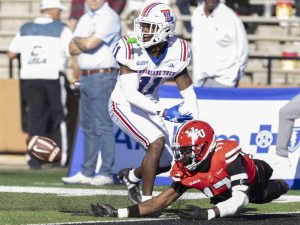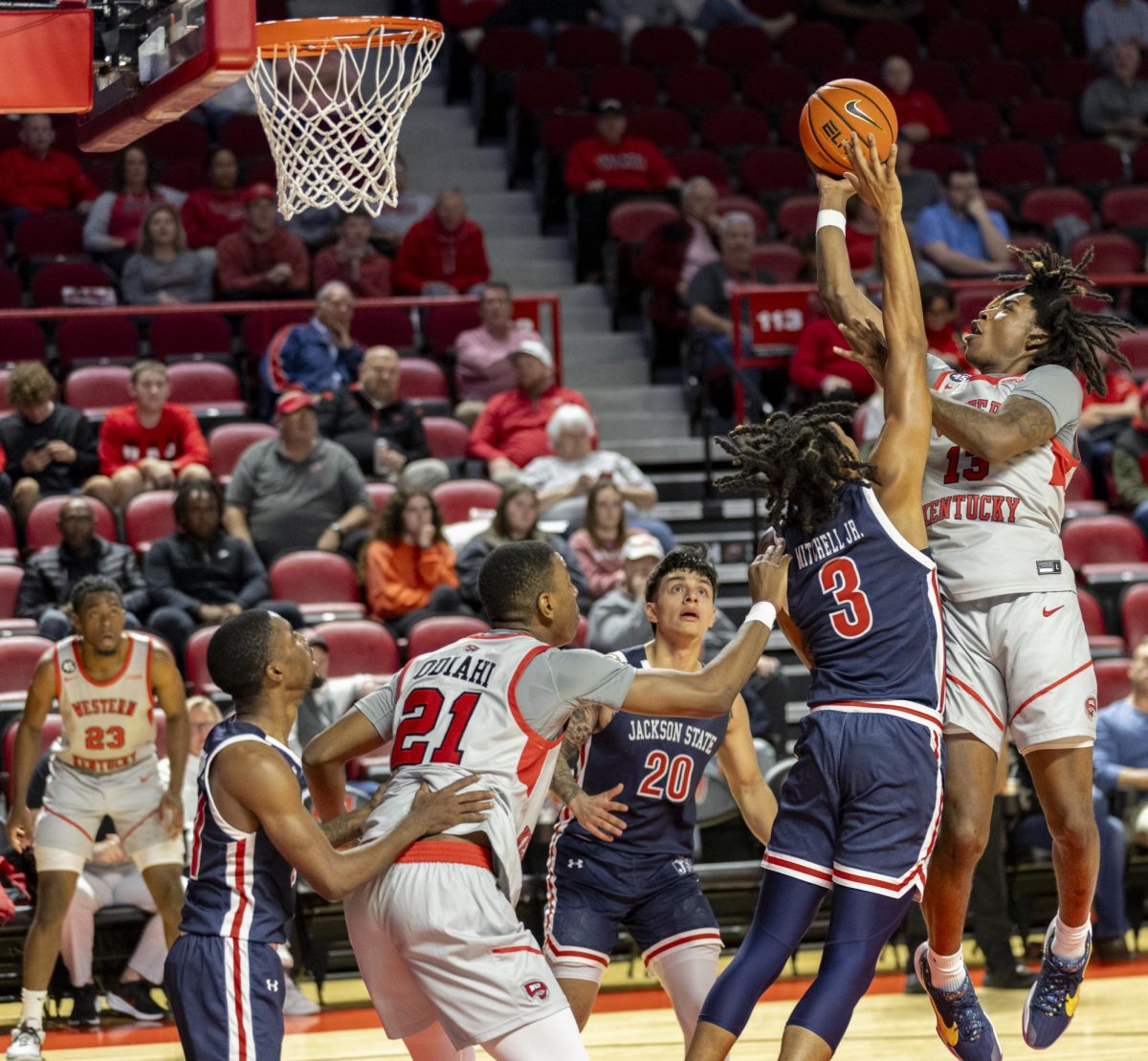ICSR speaker stresses significance of social justice
April 25, 2014
In her message to students Rhonda Williams encouraged students to be both scholars and activists.
Williams is an associate professor of history and the director of the Social Justice Institute at Case Western Reserve University. Williams was the last speaker in the Institute for Citizenship & Social Responsibility’s lecture series, which aims to spread awareness about social justice. She held her lecture on April 24 in the Faculty House.
“There are other places where knowledge is created where other people have expertise that we will never ever have,” Williams said. “The only way we can begin to think about how do we create a more just and equal society is to really begin to have those kinds of conversations.”
Judy Rohrer, director of ICSR, first heard Williams speak at a conference in Chicago. After she heard Williams speak, Rohrer knew she had to invite her to WKU.
“I’m really excited that she’s the closer for us in the social justice series,” Rohrer said.
Williams spoke about her efforts to take students off campus to learn from the community. She wants students to deeply question the world around them. Williams often asked students directly what they thought about the topics she was presenting.
One student shared his experiences volunteering at a community center where he helps mentor young kids. Williams urged students to reflect on their experiences beyond just simply volunteering.
“Why are those young boys having struggles,” she said. “If I’m going to give service at a soup kitchen that’s cool, but the question that pushes you to social justice engagement is why does that soup kitchen need to exist?”
Williams said her teaching philosophy goes beyond being simply engaged in volunteer work. A key part of learning in Williams’ educational model, “City as Classroom”, is off-campus work with organizations in the community and student reflection on that work.
Past classes were taught in community centers, churches and museums, all off-campus requiring students to travel to class. Williams asks her students to journal about traveling back and forth from campus to class.
“Really think about what is the terrain that you’re passing through,” she said. “Then you begin to see the ways in which privilege and power is actually embedded into the built environment.”
Students also take tours around the city and learn about the history of neighborhoods. One visit took students to the Eliza Bryant Village, which Williams called the only African-American nursing home in Cleveland, Ohio. There students learned about its history and listened to stories from some of the elders there.
After she concluded her talk, Williams took questions from the audience of students and faculty members. One student asked if a course based on Williams’ teaching methods was offered at WKU. Saundra Ardrey, the co-founder of ICSR, said that a similar class called Project Freedom School will be offered this fall.
After the talk, Lloren Foster, an assistant professor in the Department of Diversity and Community Studies said that education is about challenging yourself.
“When you talk about learning we have a way of learning and sometimes the way we learn is limited,” he said. “When somebody comes to you with a different idea on how to learn you buck against it because it’s not the way you know.”
At the close of her talk, Williams warned students not to think that they have all the answers about helping others.
“How do we contest the paradigm of we can help you,” she said. “How do we actually help people understand that you can be a scholar and activist at the same time?”











